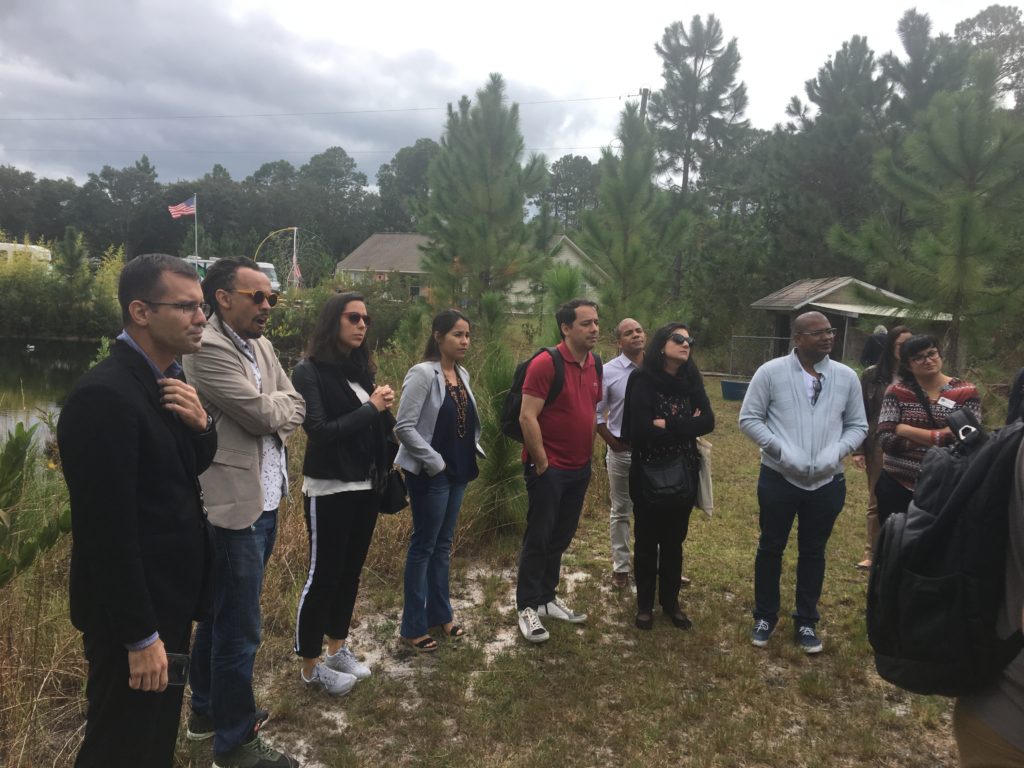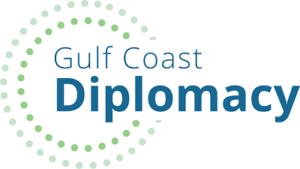What does an International Visitor Leadership Program (IVLP) titled Building Civil Society: Strategies for NGO Growth and Sustainability look like in a community the size of Pensacola? Eleven Brazilian professionals discovered this as they met with their counterparts to share best practices, challenges, and tips for success.
FAVORHouse Executive Director Sue Hand and Director of Residential Programs Marsha Travis introduced the range of services and support their organization offers victims of gender violence and highlighted its outreach and education efforts. Afterwards, the visitors explored the Gulf Coast Kid’s House where they met Prevention Coordinator Paula Doty who discussed the services and highly collaborative approach they take in addressing child abuse. The site visits continued with time at the Lacy A. Collier Sensory Complex where Escambia Westgate School Principal Jobenna Lawson-Sellers explained their program. The 14,600 square foot center is the first of its kind to surround developmentally disabled children, ages three to 21, in a multisensory environment and, as a result, attracts worldwide attention.
Spending time with youth always adds a special component to IVLP projects, and this one was no exception. In addition to time at the sensory complex, the group met with students and mentors of the Milk and Honey Outreach Ministry, a community based non-profit organization providing early intervention programs for children and youth in Pensacola’s inner city. Executive Director Sonya Culliver and Reverend William Gulley, the outreach coordinator, addressed the organization’s programming and engagement strategies and invited the Brazilians to share their culture through dance with the students.
Other meetings included time with Laura Gilliam, the president/CEO of United Way Escambia County, who discussed best practices in nonprofit leadership, board management, and engagement. Chief Robert Johns Cedarbear of the Perdido Bay Tribe spoke about his tribe’s education and outreach efforts and their structure of tribal governance, Pensacola City Council Executive Don Kraher gave the visitors a city orientation, and Jennifer Jackson-Keating of Visit Pensacola welcomed them to the region.
Of course, one of the best ways to know a community is to share ideas over coffee. The Brazilians engaged with a variety of locals in a speed-networking event where they both asked and answered questions. Attendees included, but were not limited to, Randle Carpenter (attorney), Samantha Costas (attorney), Mary Gutierrez (executive director & founder of Earth Ethics), E. Ben Posy (financial advisor), William Preston (merchant marine captain), Leonor Roper (University of West Florida International Studies student), Marty Stanovich (executive director, First Tee of Northwest Florida), John Toole (retiree, U.S. Department of State), and Linda Wade (attorney).
What does an IVLP focused on building civil society look like? It looks a great deal like our own community with engaged citizens, challenges, success stories, opportunities, energy, and creativity!
The Gulf Coast Citizen Diplomacy Council thanks everyone who worked on this project and extends a special thank you to Susan Senkarik who spent many hours facilitating appointments and sharing her knowledge with Pensacola’s newest friends from Brazil.

